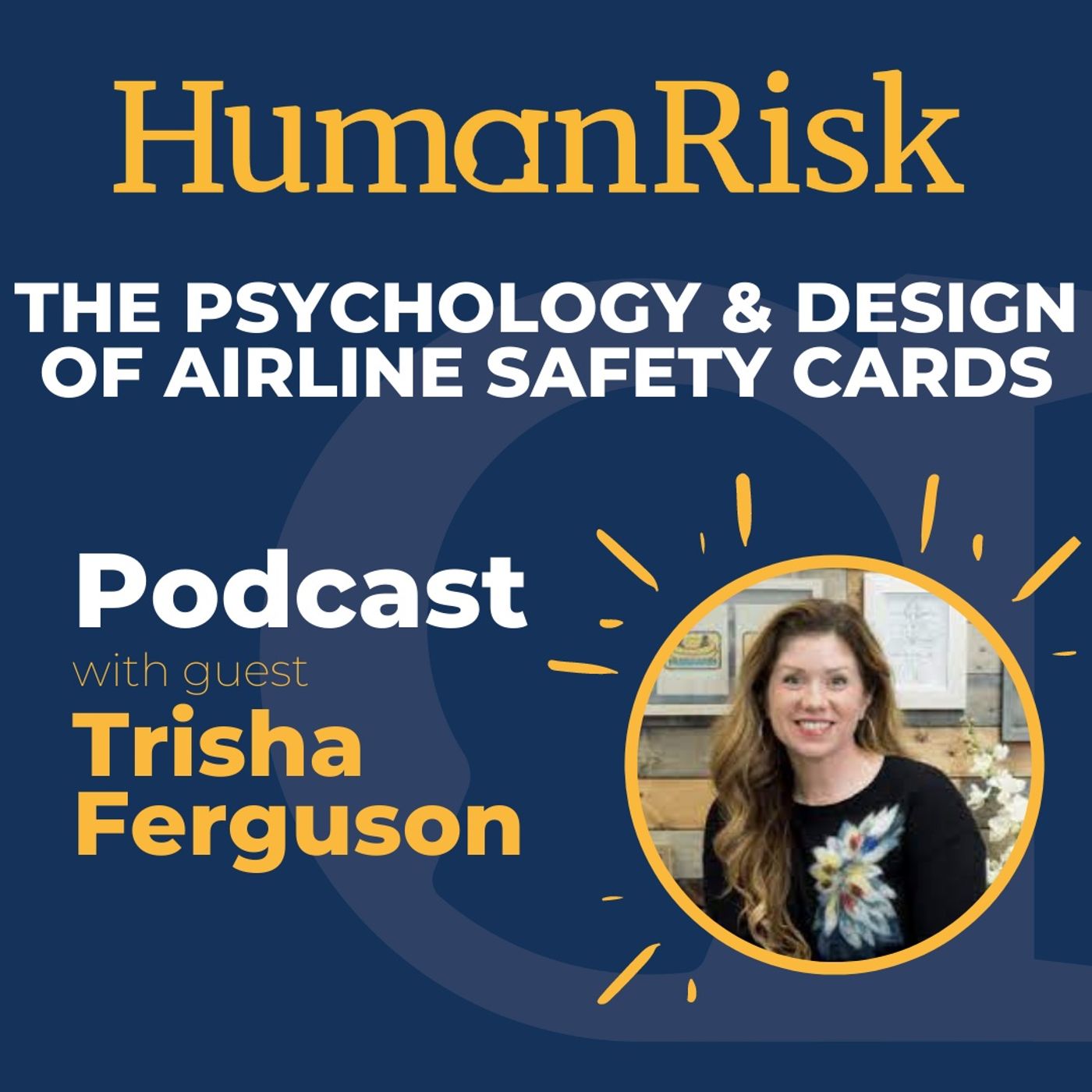Trisha Ferguson on the psychology & design of Airline Safety Cards

How can we prevent poor decision-making at a time of stress, when human action can make a real difference? That's what my guest on this episode, Trisha Ferguson, helps to deliver. She's the CEO of Interaction Research Company (IRC), a firm that...
How can we prevent poor decision-making at a time of stress, when human action can make a real difference? That's what my guest on this episode, Trisha Ferguson, helps to deliver. She's the CEO of Interaction Research Company (IRC), a firm that advises airlines on passenger safety. And more importantly, from my perspective, designs and produces passenger safety cards.
I'm interested in the cards because they effortlessly combine artistic design with a high degree of functionality. Not only are they an amazing piece of Compliance design, they’re also a critical tool for mitigating Human Risk. Which is why they’re a regulatory requirement. If a plane doesn’t have safety cards on board, then it’s not allowed to take off. That’s because one of the biggest risks, when there’s an incident on an aircraft, is human - how we react, makes all the difference.
So if you were looking for something iconic that neatly summarised Human Risk and my mission to bring behavioural science to compliance, then the airline safety card is probably it. Which is why I wanted to find out more about how the cards are created and approved for use.
In our discussion, we explore the history of IRC and how Trisha came to own the company. She explains the complexities involved in making the cards and the factors that need to be considered. We explore the psychology behind the design and the process they go through to get them into planes.
Airline Safety Cards are also the inspiration for the soon-to-relaunch www.human-risk.com which will have an airline safety card theme.
For more on IRC visit - https://ircprint.com/ and http://safetycards.com/#about
For Trisha's blog visit - https://ircprint.com/2020/06/30/intro-crisis/




















